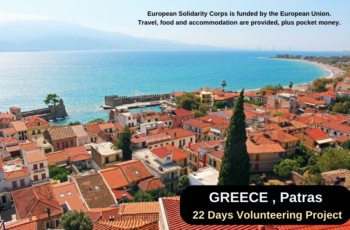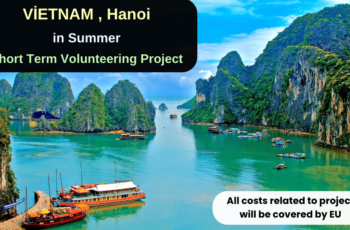🌱 Youth Training on Ecofeminism in Norway
This immersive training invites youth workers to explore and integrate ecofeminist principles into their practice—bridging gender equality and environmental justice in meaningful, interconnected ways.
🌍 Why This Training Matters
Today’s youth are increasingly aware of global challenges like climate change and gender inequality. Yet these issues are often addressed in isolation.
Ecofeminism offers a powerful lens that reveals how environmental degradation and the oppression of women and marginalized communities are deeply intertwined.
There’s a growing need for youth work to adopt a more holistic and inclusive approach—and this training is designed to meet that need head-on.
🎯 What Participants Will Gain
By the end of the program, participants will:
Understand the role and dimensions of ecofeminism within broader feminist movements
Examine the links between ecological destruction, patriarchy, and other systems of oppression (e.g., capitalism, colonialism, racism)
Critically assess how gender and environmental issues are portrayed in media, politics, and cultural narratives
Explore how young people engage with these intersecting challenges
Learn how to embed ecofeminist values into youth work practices
Be equipped to inspire youth toward collective action for social and ecological justice
🧠 Learning Approach
The training is rooted in experiential learning, drawing from participants’ lived experiences.
Everyone is encouraged to actively contribute, and the program adapts to group dynamics and individual feedback. Inclusive and flexible methods ensure a safe space for diverse voices and perspectives.
👩🏫 Meet the Trainers
The sessions will be led by seasoned professionals with expertise in ecofeminism and youth empowerment:
Andreea-Loredana Tudorache – Active in international youth work since 2003; founding member of A.R.T. Fusion Association
Elena Stevkovska – Youth worker, volunteer coordinator, theatre trainer, and facilitator
Tuba Ardıç – Founder of Creative Connection, trainer for the Norwegian National Agency, social researcher, and mentor in youth development
Their latest initiative, Balestrand Art Factory, is a scenic art hub overlooking the Sognefjord, hosting workshops, events, and artist residencies.
📅 Dates: October 20–29, 2025 📍 Location: Balestrand, Norway
Join us our telegram group for more opportunities – t.me/erasmusday
Join us our WhatsApp Channel group for more opportunities –WhatsApp Channel

